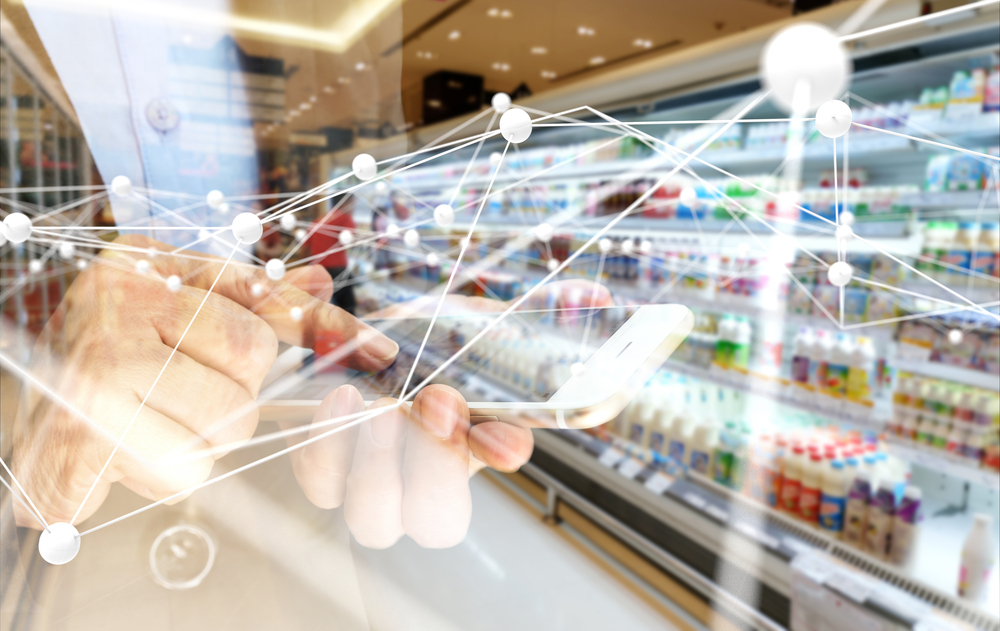Autonomous Retails: The Future of Retail Has Arrived
Internet of Things (IoT) is no longer a buzzword, especially when it comes to retail industry!
In the past few years, research and innovation in this sector have been paramount, resulting in disrupting changes in retail. Combining smart devices, super intelligent sensors, social media, artificial intelligence and IoT, retail industry is on the verge of an accelerated transformation today; retail is on the threshold of becoming autonomous retail!

So, what is autonomous retail?
Autonomous retail is nothing but a highly tech savvy Eco-system where customer experience as well as the way businesses handle their operations is completely automatized by using self-aware stores, connected merchandising and automated supply-chain management.
Autonomous retail system uses existing technologies such as mobile phone, Bluetooth and wearable gadgets and combine them with more advanced ones such as artificial intelligence, machine learning and IoT for creating a retail system that is more service driven, interactive and action centered.
The most amazing thing about autonomous retail is that the awesome interconnectedness not only reaches out to consumers, but also touches suppliers, partners and any other stakeholders involved.
The Rise of Autonomous Retails
Advancement of technology is definitely behind the rise of a futuristic autonomous retail system. However, that’s not the only reason!
The consumer experience and expectation acts as a driving force here. The shopping experience of consumers have remained more or less same in last decade. However, their expectation for a more personalized shopping experience have grown significantly. Being a highly consumer driver sector, retailers all around the world are being pushed to incorporate advanced technology to create a more satisfying consumer experience.
In 2016, Lowe’s partnered with Fellow Robots to launch LoweBot, an intelligent automated store assistant. The intuitive machine can not only navigate the store aisles thanks to its advanced sensors, but also can greet the customers, help them find products and even walk them to the location of any product. On one hand this automated assistant works as an information kiosk with human touch, on the other hand, its advanced analytics system can update inventory on real time basis.
Image: Fellow Robots
According to experts, this is just a beginning!
Autonomous retail thrives on IoT and interconnectedness; and as per IDC’s research, IoT base is to reach 30 billion by 2020. As astounding as this data may sound, based on the present environment of digital connectivity, this is not at all impossible.
So, How Can E-Commerce Companies and Brick and Mortar Stores Transform towards Autonomous Retail?
Autonomous Retail and IoT are not just exciting concepts in the retail world anymore! While the concept is still in its nascent stage, Starbucks has already adopted autonomous retail with success to enhance customer experience as well as smooth management.
So, here’s the key areas where eCommerce companies and retailers can implement IoT and take their first steps towards autonomous retail:
Self-Aware Stores:
The IoT enabled brick and mortar store is a retailer’s dream come true! When connect with superior sensors, the automated retail stores can take a consumer’s shopping experience to a whole new level. Right from greeting the customer, helping him navigate the store based on his shopping list, informing about relevant offers and smart payment processing, an automated retail store can make the shopping experience highly personal. On the other hand, retailers can make use of the real-time analysis of in-store traffic and products in demand to ensure better placement of products and inventory update.
Inventory Management:
Inventory management has always been one of the most crucial things in business operation for both eCommerce as well as physical stores. In an autonomous retail environment, sensors such as radio frequency tags are deployed to track products in real time. This tracking can be done in various stages, such as in warehouses, storage sections and even on the store aisle. Moreover, this tracking can be done remotely by respective vendors who can track the products to see which are running low and immediately replenish the stocks.
After Sales Services:
This is crucial for high value products. In an autonomous retail scenario, products that needs regular maintenance can be tracked and notifications for regular maintenance visits can be automatically generated. Moreover, if the products in question are covered under warranty, the manufacturer can get real time update on any malfunction. This intelligence not only enables the retailers and manufacturers to ensure customer satisfaction, but also can help them understand the issues and usage patterns to improve the products.
Intelligent Vending Machines:
Vending machines have long been a part of retail sector. However, in autonomous retail Eco-system they can be highly autonomous; the vending machines can send auto generated notifications for stock update, maintenance and can even guide the customers to the nearest vending machine in case the product in demand in out of stock. IoT enabled vending machines can go a step further by detecting the product life-cycle and purchasing patterns, and can slash price for products that are going bad or are not in demand on its own.
In today’s world, where cloud computing and digital technology is increasingly blurring the borders of digital and physical world, adopting autonomous retail to create a personalized user experience is definitely the next logical step for retail industry. With the cost for technology getting lower and consumer expectation getting higher, it is time to see how retailer around the world adopt to IoT and transform themselves from retail to autonomous retail.
